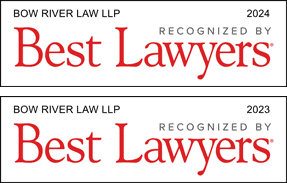- Home
- Services
- Constructive Dismissal
- COVID-19
- Discrimination / Human Rights
- Employee Sued by Employer
- Employment Contracts: Drafting / Review / Negotiation
- Employment Policy Drafting / Review
- Fiduciary Obligations
- Harassment / Bullying
- Independent Contractors
- Just Cause For Termination
- Lay-Offs
- Non-Competition / Non-Solicitation
- Professional Regulation
- Severance Review / Negotiation
- Union / Labour Law
- Workplace Investigations
- Wrongful Dismissal / Unjust Dismissal
- About
- Our Team
- Blog
- Call Now: 587-391-7601
- Contact Us
Building Trades of Alberta Fails to Get Intervenor Status in DFR

Mohamed v Unite Here Local 47, 2023 CanLii 78335 (ABLRB) (Vice Chair Armstrong) is an Alberta Labour Relations Board decision where the Building Trades of Alberta attempted to secure intervenor status in a duty of fair representation complaint, but failed.
An “Intervenor” is typically an organization that is allowed to take part and make submissions in a hearing even though they are not technically one of the parties. They might be allowed to take part where they are indirectly affected or have a special knowledge of the subject matter of the dispute.
This case provides an example of the test for when a party will be granted intervenor status in a labour matter. Legal counsel for the complainant – who was successful in this application – was Bow River Law employment lawyer Michael Hernandez.
Facts
The following were the facts summarized by the Alberta Labour Relations Board:
- The action concerns a Duty of Fair Representation (“DFR”) complaint, where the complainant alleged that the union Unite Here, Local 47 had not properly represented her interests
- Mohammed had worked in an oil industry camp
- She was site banned from the worksite she was working at, by the third-party owner of that site, not her actual employer
- The employer was in a position of either moving the complainant to another site, laying her off, or terminating her employment. It chose to terminate her employment
- The complainant was arguing in her DFR complaint that the union should have done more to get the site ban lifted than it did
- The Building Trades of Alberta (“BTA”) is a third party organization that is not directly affected by the DFR complaint, but the Unite Here, Local 47 Union is an affiliate member of BTA
Analysis / Conclusion
Vice Chair Armstrong started his analysis of whether the BTA should be granted intervenor status by setting out the test the ALRB should consider in making its decision:
[5] In HSAA v. Dynacare et al [1997] L.D-024, the Board set out the factors to be considered in an intervenor application from a person or organization which is not an affected party:
The relationship of the applicant to the application before the Board.
The potential assistance that the intervenor may provide the Board.
The directness of the effect of any decision on the intervenor.
Any other matter impacting the application.
The Vice Chair noted that the BTA is “at best an interested party”, and that Unite Here Local 47 would likely be able to provide the same sort of information BTA could provide about site bans, how various parties deal with site bans, and the potential effects of a decision would be. He also noted that BTA’s intervention may delay proceedings and increase costs.
Ultimately, he concluded that the granting of intervenor status was in his discretion, and he was declining to grant it.
My Take
This decision is not overly surprising, but it should serve as a reminder that being an interested party is often not going to be enough to get intervenor status. If intervenors were readily allowed to participate by being “interested parties” alone, it would likely lead to more complex and expensive litigation because there are always industry groups that want legal precedent to develop in favor of their members’ interests. In other words, I think the decision and the relevant test is sensible.
Bow River Law provides these regular legal blog articles for the purposes of legal news, education and research for the public and the legal profession. These articles should be considered general information and not legal advice. If you have a legal problem, you should speak to a lawyer directly.
Bow River Law is a team of knowledgeable, skilled and experienced lawyers handling employment law, human rights (discrimination) and labour law matters. Bow River Law is based in Calgary but we are Alberta’s Workforce Lawyers.


